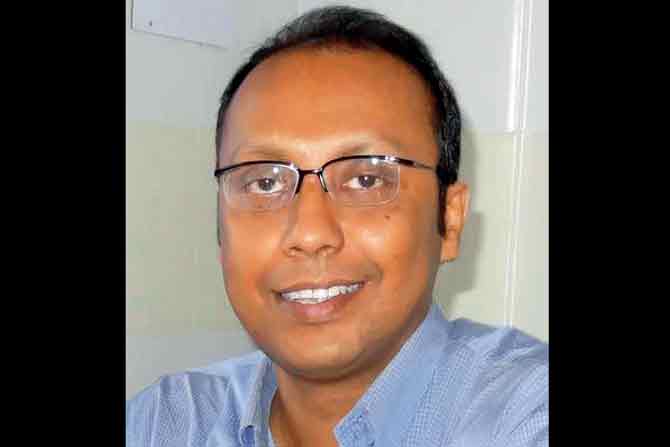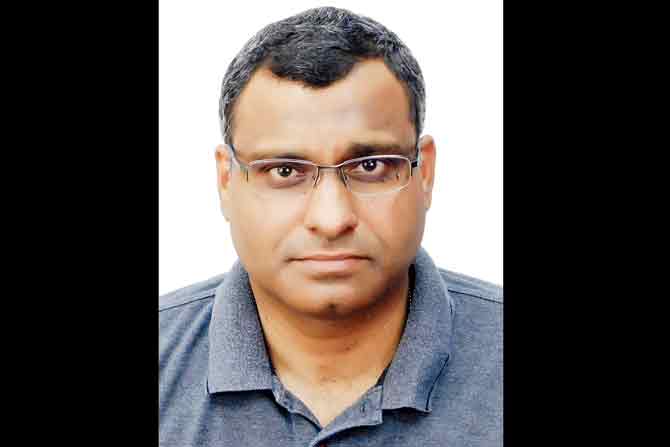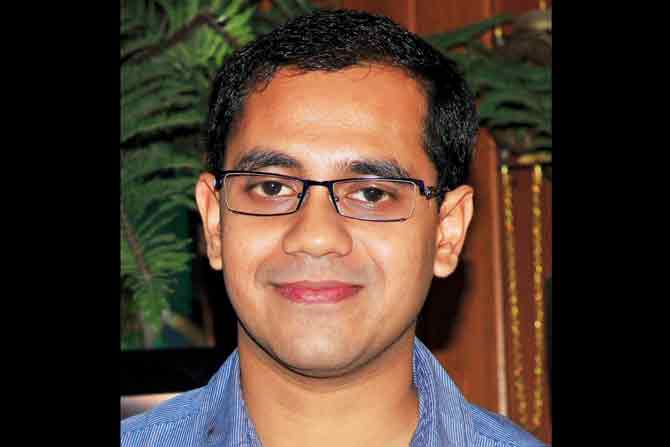With state governments struggling to fill the position of epidemiologists, those in the profession are hopeful that the pandemic may generate interest in a little-known medical field

A man dressed as Yamraj during a campaign organised by Delhi Police to raise awareness on the importance of wearing face masks and maintaining social distancing in public at Rajpath. Epidemiologists have been working closely with governments to understand
In March, when states across India began devising strategies to prevent and control the spread of the Coronavirus outbreak, the need for a little-known community of researchers called epidemiologists came to fore. Often called "disease detectives", they are tasked with identifying the cause of the disease, persons who are at risk and then devising ways to stop the spread of the infection. Although state machinery and governments swung into action and began to issue circulars calling for epidemiologists to apply for frontline jobs, recruitment continues to remain low over six months after India first went into lockdown.
ADVERTISEMENT

Dr Ambarish Dutta
In fact, it was way back in April that India-s health secretary Preeti Sudan, wrote a letter to the Central government about hiring epidemiologists. According to the correspondence, 216 of India-s 736 districts have epidemiologist positions vacant. A report by IndiaSpend states that more than a quarter of India-s 736 districts have no epidemiologists, and 11 states have no state-level specialists. "There-s a serious dearth of epidemiologists in the country," says Dr Ambarish Dutta, who works at the Public Health Foundation of India in Bhubaneshwar as Additional Professor of Epidemiology. "An epidemiologist essentially looks at the distribution of the disease in terms of time, place and person. He-s the one investigating who is sick, where could the sick have been exposed, and when they got sick. The answers to these questions provide clues on what caused the illness and how to prevent it from affecting others in the population. They look at the data and draw inferences, making recommendations for policies to intervene or control the spread," he explains. According to Dutta, epidemiology as a discipline is far from well developed in the country. Although every district in India has an epidemiology position that-s supported by the National Health Mission, the set of skills they possess are weak. "Unlike lab experiments, epidemiology provides evidence based on studies of human populations under real-world conditions. With a new disease like the Coronavirus, evidence is changing every day. There is absolutely no history or experience of dealing with it, which is why generating evidence with the help of epidemiologists is critical." Dutta says that Delhi, being the central state, has many national institutes supporting the discipline. A similar bandwidth exists within Tamil Nadu and Maharashtra. The same cannot be said about the other states. According to Karnataka Medical Council statistics, the whole of Bengaluru has just four epidemiologists and the entire state only 24. An IndiaSpend report states that Telangana has 33 districts and 30 sanctioned positions for district-level epidemiologists, of which only six are full. "The distribution of the disease is heterogenous. Every district has its own characteristics. So that needs studying. We need to find out how the disease is impacting different communities, whether certain populations are at higher risk, at what pace the curve is growing or flattening. It is only after we identify the risk factors that action can be taken. Therefore, it is necessary to have epidemiologists at the district as well as at the sub-district level."

Dr Rajiv Sarkar
Dr Rajiv Sarkar is an infectious disease epidemiologist at the Indian Institute for Public Health IIPH, Shillong. He has been involved in the design and conduct of a wide range of epidemiological studies in India, including the control of soil transmitted helminths and other enteric infections. Presently, he is teaching the students of Master of Public Health MPH at IIPH Shillong. As an epidemiologist, he has also been supporting the Government of Meghalaya GoM with COVID-19 data analysis, predictions and projections. Having worked in the public sector, Sarkar is all too familiar with the problem of shortage of epidemiologists. "Traditionally, Indians want to get into medicine or engineering. How many people in India are interested in public health research? Hopefully, it will change with the Coronavirus," says Sarkar, whose academic qualifications include a PhD in Epidemiology from the Christian Medical College, Vellore. What compounds the problem here is the lack of opportunities to pursue it as a discipline. "If you look at western countries, they have many training programmes for epidemiology, including a Masters in Public Health MPH in Epidemiology; MSc Epidemiology, both postgraduate courses and PhD or DrPH Doctor of Public Health, which equips students to apply various research and analytical techniques to uncover the patterns and causes of a disease. However, in India, the concept of public health is relatively nascent. Here, we offer an MD in Community Medicine, with training in epidemiology. But, if we are looking at a Masters or PhD programme in epidemiology, we don-t have too many places that can train you for it." One of the reasons for the low turnout is also the turnaround time. "Clinical medicine can produce results [to a patient] in a matter of weeks if not days, but when you-re talking about public health epidemiology, it takes years to make a difference [to the community]." What drew Sarkar towards the discipline is its logical and data-driven character. Sarkar and his colleagues- recommendations were recently used by the GoM to understand the trajectory of the pandemic in the state.

Dr Aritra Das
Aritra Das is an expert epidemiologist at the Bihar Technical Support Programme, CARE India, based out of Kolkata. He says one of the challenges that epidemiologists face is the access to quality data. "Even if it is available, it is not made accessible to people beyond the Indian Council of Medical Research ICMR. This leads to a lack of transparency. Moreover, they [government authorities] are not really open to criticism. Our critiques get published in peer-reviewed journals and that data never really reaches the government. In the initial days of the outbreak, there was a positive response when they started awareness campaigns on segregation of patients with co-morbidities based on our suggestions. That lasted a couple of months. There is no focus on long-term strategies." With the economy opening up, Das says it-s important that we concentrate on ways to reduce the number of people who will step out on the roads every day. He suggests alternate work days, staggered office timings, installing handwashing stations in public places and making masks mandatory.
Dutta says, as epidemiologists, their focus has shifted from March to now. "Earlier, we were figuring if the infection can be prevented from spreading across the country. Now, our thrust is containment, because it-s most likely to affect most of India. All we have to do is not let it happen in one go because that will overwhelm the health system."

Dr Subhash Salunke
Dr Subhash Salunke, senior adviser with the Public Health Foundation of India in Maharashtra, says now it-s important that they not just focus on COVID-19, but also other communicable and non-communicable diseases, which are present in the system, and will continue to be. "Health systems cannot say we have done a good job on the Coronavirus. We need to think about how we are going to respond to the next pandemic. Water-borne or food-borne infections are easier to manage, even if they turn into a pandemic. One thing is clear: we will see more air-borne viruses in the future. And we need to be ready."
11
Number of Indian states that don-t have a single epidemiologist
Keep scrolling to read more news
Catch up on all the latest Mumbai news, crime news, current affairs, and a complete guide from food to things to do and events across Mumbai. Also download the new mid-day Android and iOS apps to get latest updates.
Mid-Day is now on Telegram. Click here to join our channel @middayinfomedialtd and stay updated with the latest news
 Subscribe today by clicking the link and stay updated with the latest news!" Click here!
Subscribe today by clicking the link and stay updated with the latest news!" Click here!






